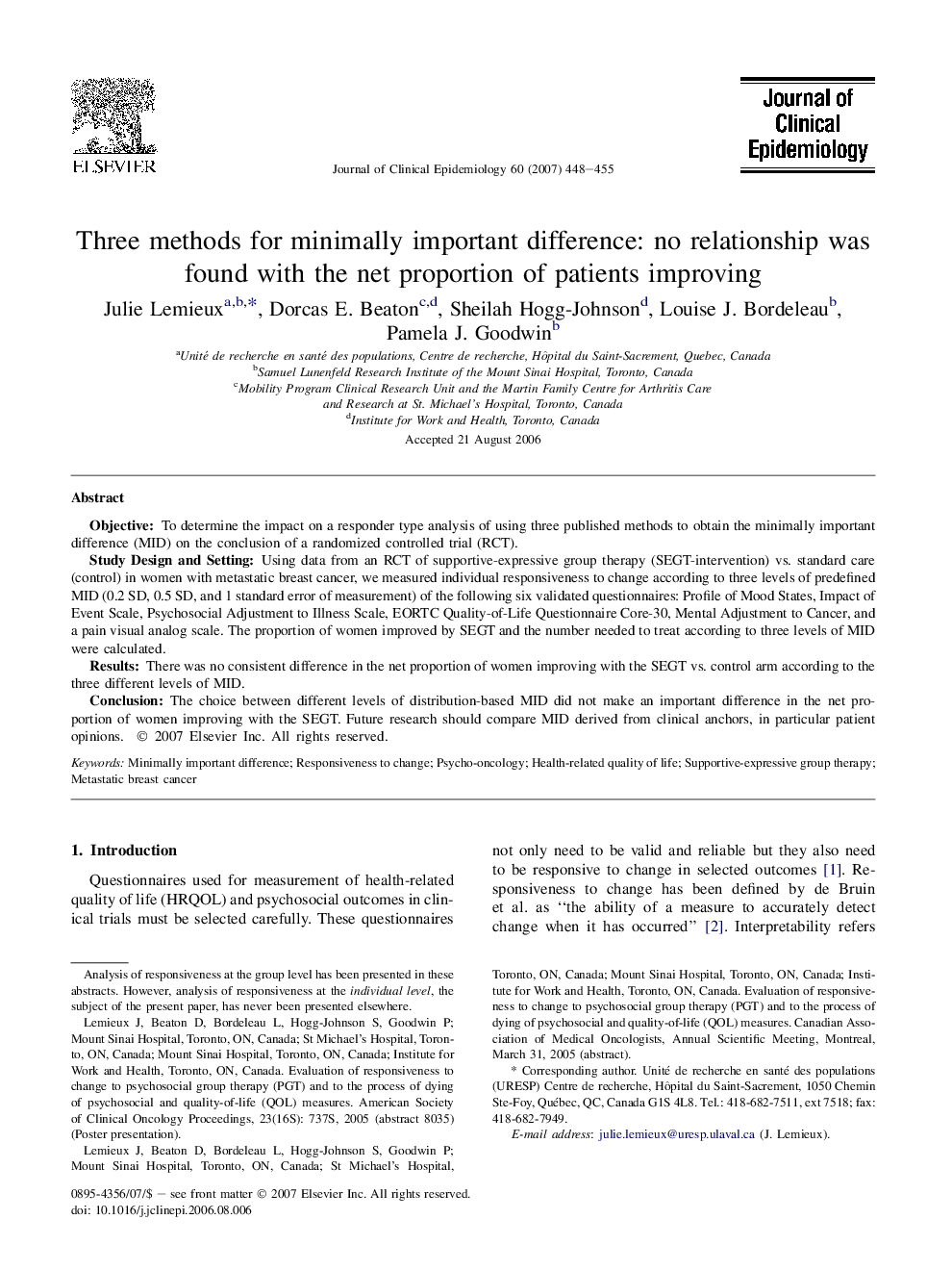| Article ID | Journal | Published Year | Pages | File Type |
|---|---|---|---|---|
| 1083925 | Journal of Clinical Epidemiology | 2007 | 8 Pages |
ObjectiveTo determine the impact on a responder type analysis of using three published methods to obtain the minimally important difference (MID) on the conclusion of a randomized controlled trial (RCT).Study Design and SettingUsing data from an RCT of supportive-expressive group therapy (SEGT-intervention) vs. standard care (control) in women with metastatic breast cancer, we measured individual responsiveness to change according to three levels of predefined MID (0.2 SD, 0.5 SD, and 1 standard error of measurement) of the following six validated questionnaires: Profile of Mood States, Impact of Event Scale, Psychosocial Adjustment to Illness Scale, EORTC Quality-of-Life Questionnaire Core-30, Mental Adjustment to Cancer, and a pain visual analog scale. The proportion of women improved by SEGT and the number needed to treat according to three levels of MID were calculated.ResultsThere was no consistent difference in the net proportion of women improving with the SEGT vs. control arm according to the three different levels of MID.ConclusionThe choice between different levels of distribution-based MID did not make an important difference in the net proportion of women improving with the SEGT. Future research should compare MID derived from clinical anchors, in particular patient opinions.
